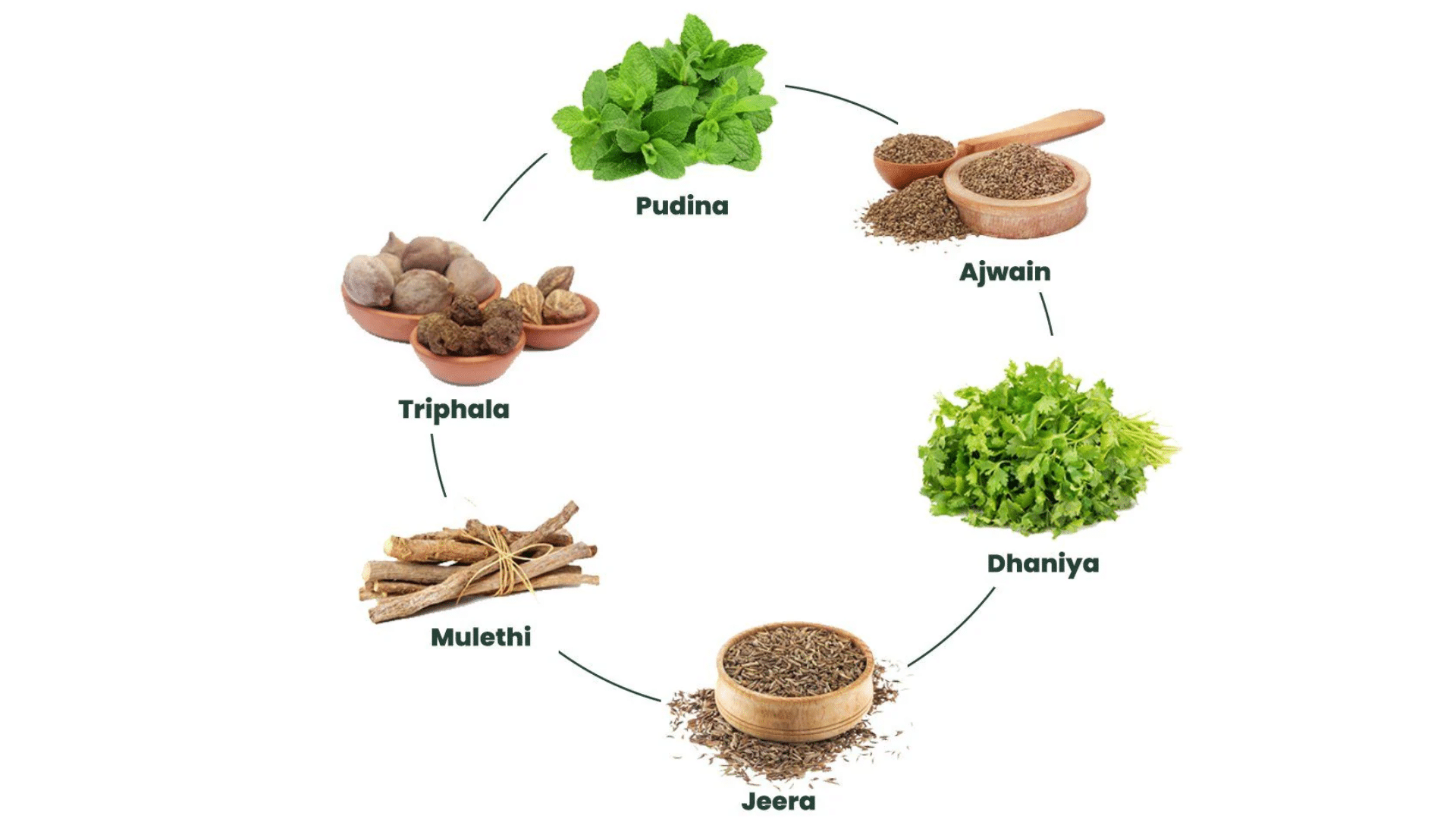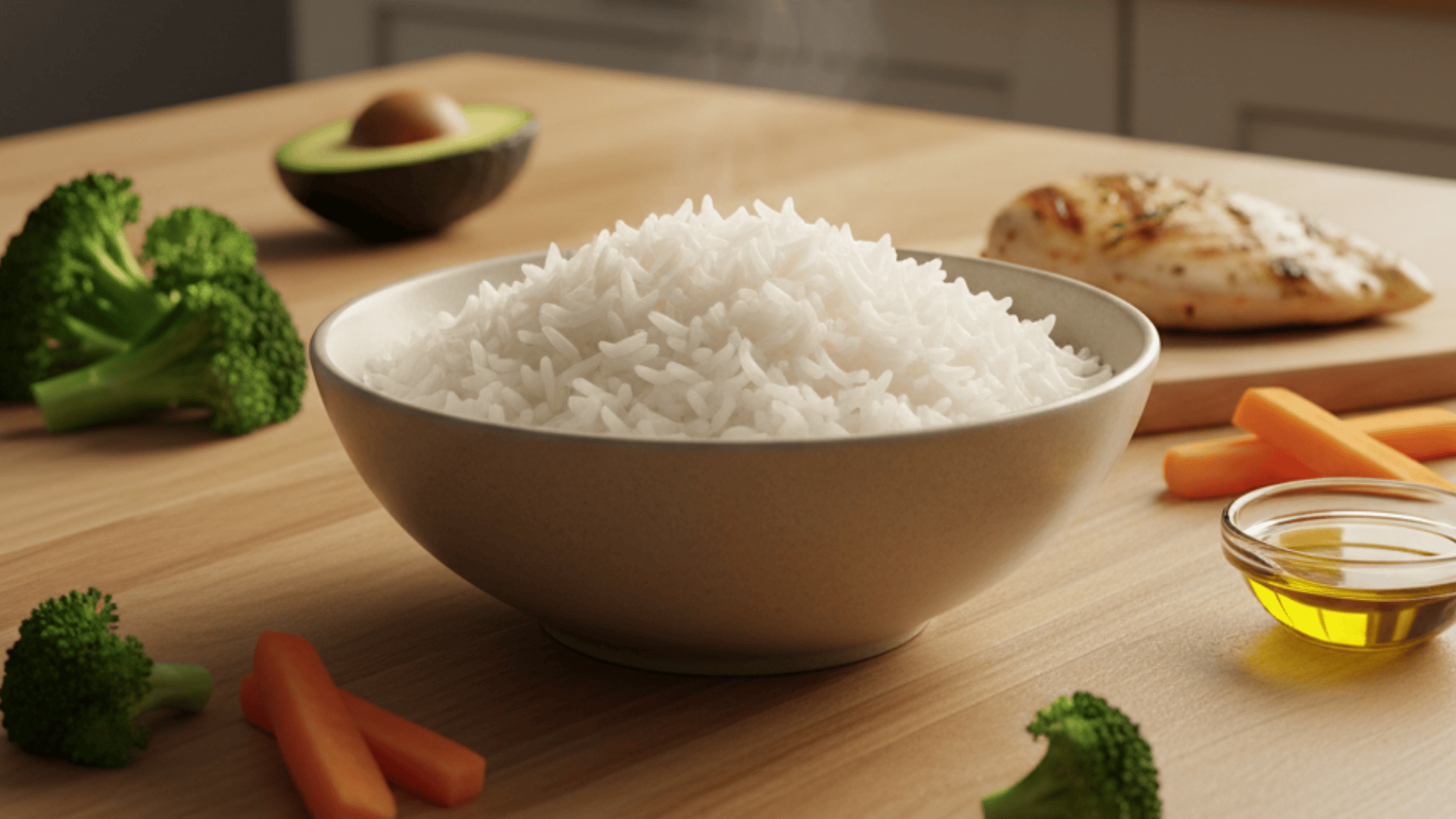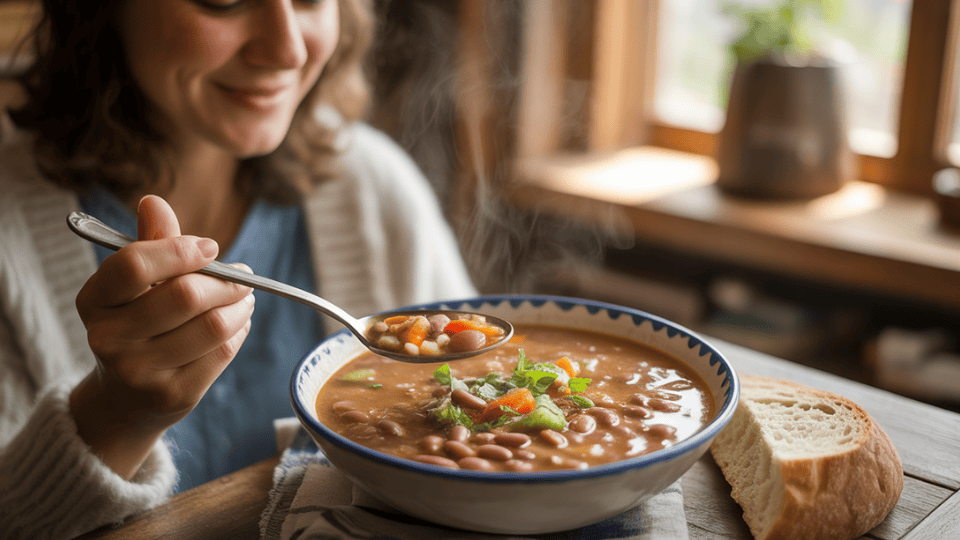When you’re backed up and feeling uncomfortable, you don’t want to wait days for relief; you want something that works now. I’ve been there too, and I know how frustrating it can be.
That’s why I’ve pulled together every instant Indian home remedy for constipation that’s helped me and others get things moving again, often within hours. You don’t need anything fancy or complicated to feel better.
Even basic kitchen staples like ghee, figs, or ginger can help loosen things up. If you’re tired of trying random fixes and want something rooted in real-life results, you’re in the right place.
Let’s figure out which one suits you best and get your digestion flowing smoothly again.
Quickest-Acting Indian Remedies You Can Try Now
These fast-acting remedies provide relief within hours or overnight. They’re perfect for those moments when you need quick help.
1. Ginger Tea or Raw Ginger
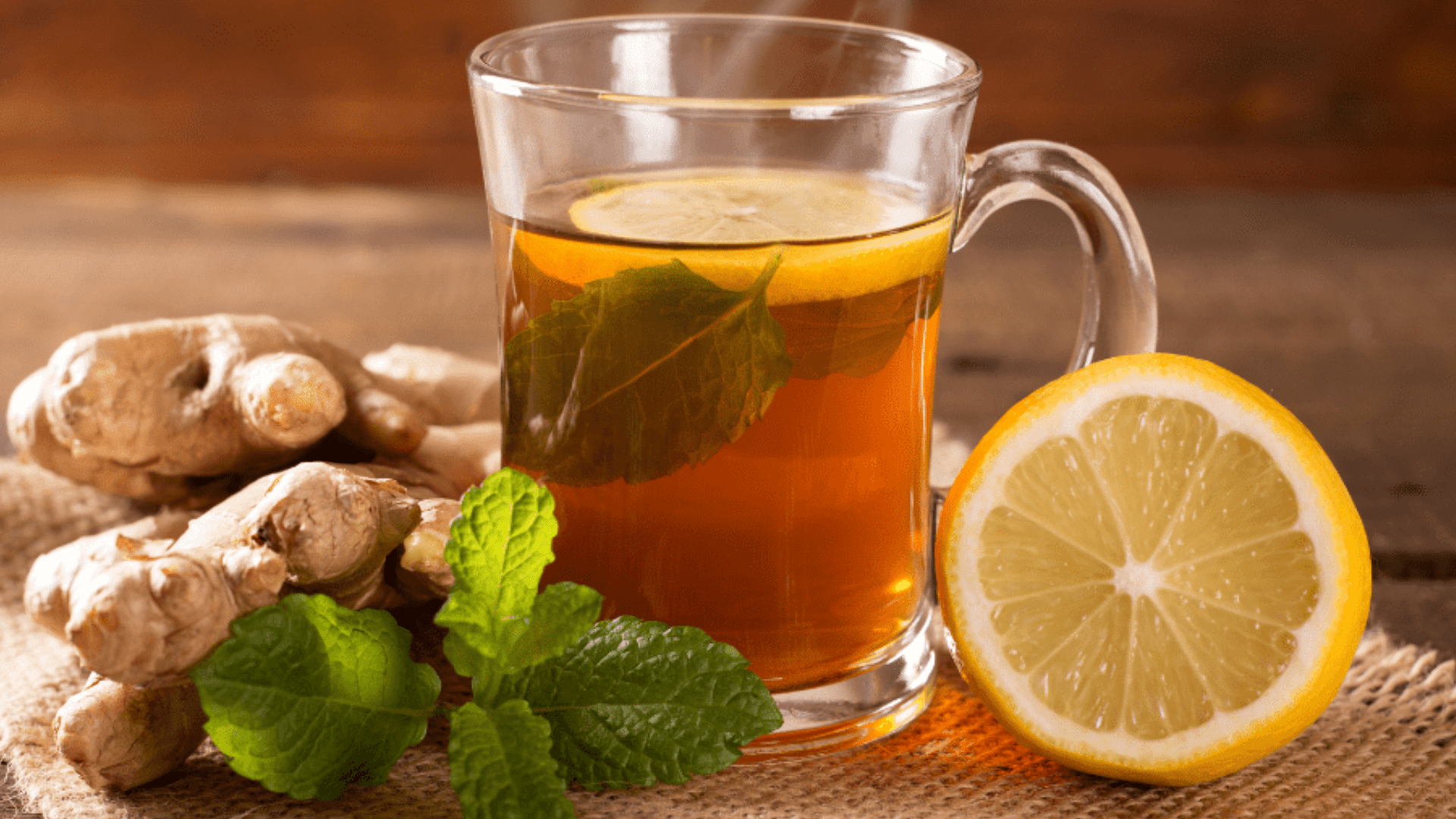
Prep Time: 5 minutes
Taste Profile: Spicy, slightly pungent
Safe For: Adults, kids over 1, pregnant women
Best For: Vata imbalance
How-To:
- Grate ½ tsp of fresh ginger.
- Steep in 1 cup hot water for 5 minutes.
- Sip slowly on an empty stomach.
Use With Caution: Avoid high doses if you have ulcers or take blood thinners. Limit to 1–2 cups daily.
2. Warm Ghee in Milk

Prep Time: 3 minutes
Taste Profile: Creamy and rich
Safe For: Adults, elderly (if not lactose intolerant)
Best For: Vata and Pitta
How-To:
- Warm 1 cup of milk.
- Stir in 1 tbsp ghee.
- Drink before bedtime.
Use With Caution: Not suitable for people with dairy allergies or severe IBS. Avoid if you have high cholesterol concerns.
3. Triphala Powder or Tea
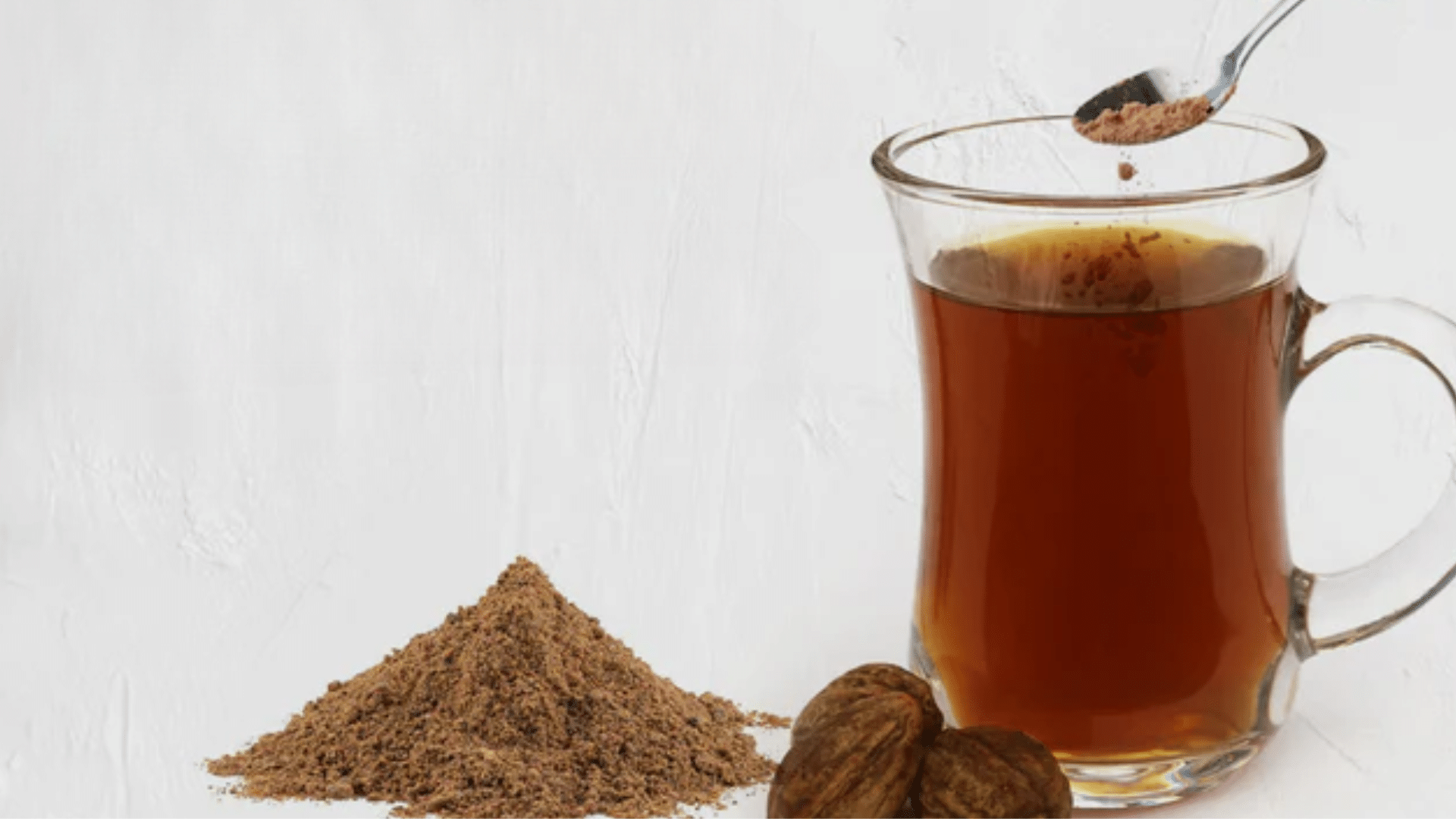
Prep Time: 2–5 minutes
Taste Profile: Bitter and earthy
Safe For: Adults (not for pregnant women or kids)
Best For: Balancing all doshas
How-To:
- Mix 1 tsp Triphala with lukewarm water.
- Stir and drink before bed.
- Or steep with coriander and cardamom seeds for a mild tea.
Use With Caution: Avoid during pregnancy. Do not exceed the daily dose or use for more than 2 weeks continuously.
4. Soaked Anjeer (Figs)

Prep Time: 1-minute prep, overnight soak
Taste Profile: Naturally sweet and soft
Safe For: Adults, the elderly, kids above 2
Best For: Vata and Pitta
How-To:
- Soak 2–3 dried figs in water overnight.
- Eat on an empty stomach the next morning.
- Repeat daily for 5–7 days.
Use With Caution: Avoid if you have IBS-D or sensitive bowels. May cause bloating in rare cases.
5. Senna Tea (Use Occasionally)

Prep Time: 5 minutes
Taste Profile: Bitter and herbal
Safe For: Adults (not for kids or during pregnancy)
Best For: Severe Vata constipation
How-To:
- Steep 1 senna tea bag in hot water for 5 minutes.
- Drink before bedtime.
- Expect relief in 6–12 hours.
Use With Caution: Use only 1–2 times per week. Overuse can damage the gut lining or cause dependency.
6. Roasted Fennel Seeds in Warm Water
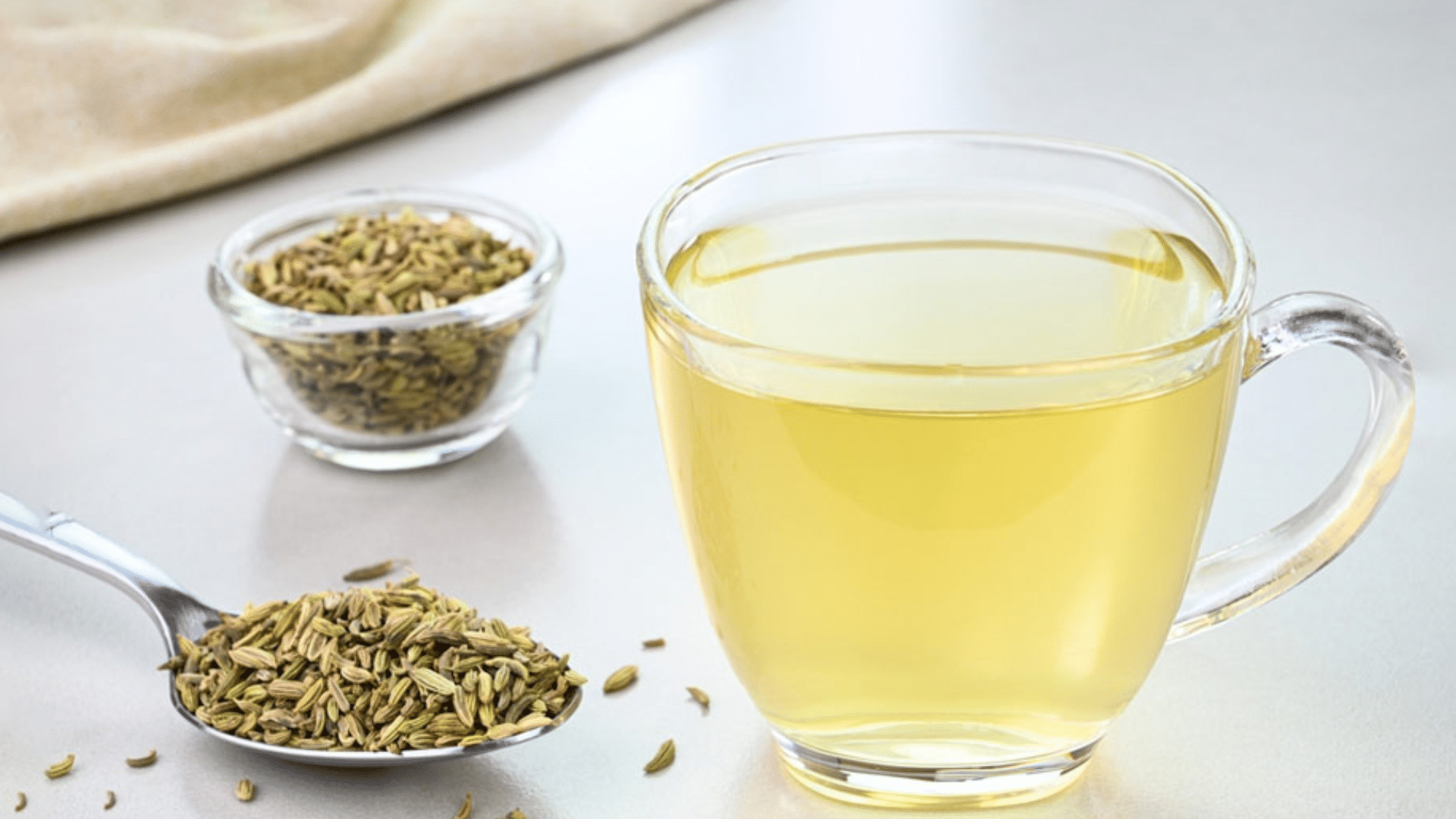
Prep Time: 2 minutes
Taste Profile: Sweet and nutty
Safe For: All ages, including pregnancy
Best For: Vata and Kapha
How-To:
- Roast 1 tsp fennel seeds.
- Mix in warm water and stir well.
- Drink before bedtime.
Use With Caution: Very safe when used in moderation. Avoid if allergic to fennel or related herbs.
7. Castor Oil (10 Drops on an Empty Stomach)
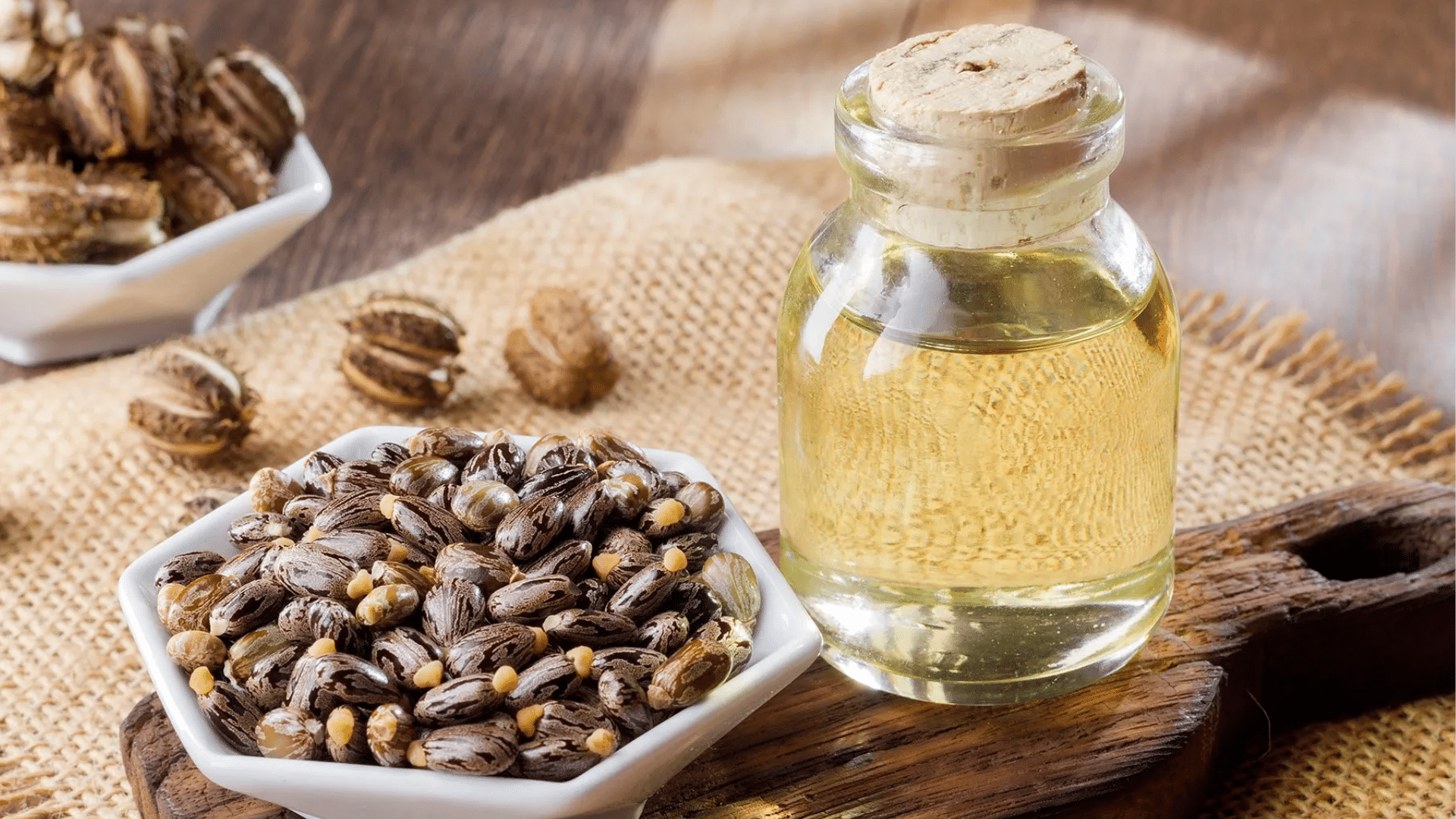
Prep Time: 1 minute
Taste Profile: Oily, bland
Safe For: Adults only
Best For: Vata
How-To:
- Take 8–10 drops of pure castor oil.
- Swallow with warm water on an empty stomach.
- Expect a bowel movement within 4–6 hours.
Use With Caution: Not for pregnant women or children. Don’t use more than once every few days.
8. Raisin-Date-Fig Paste
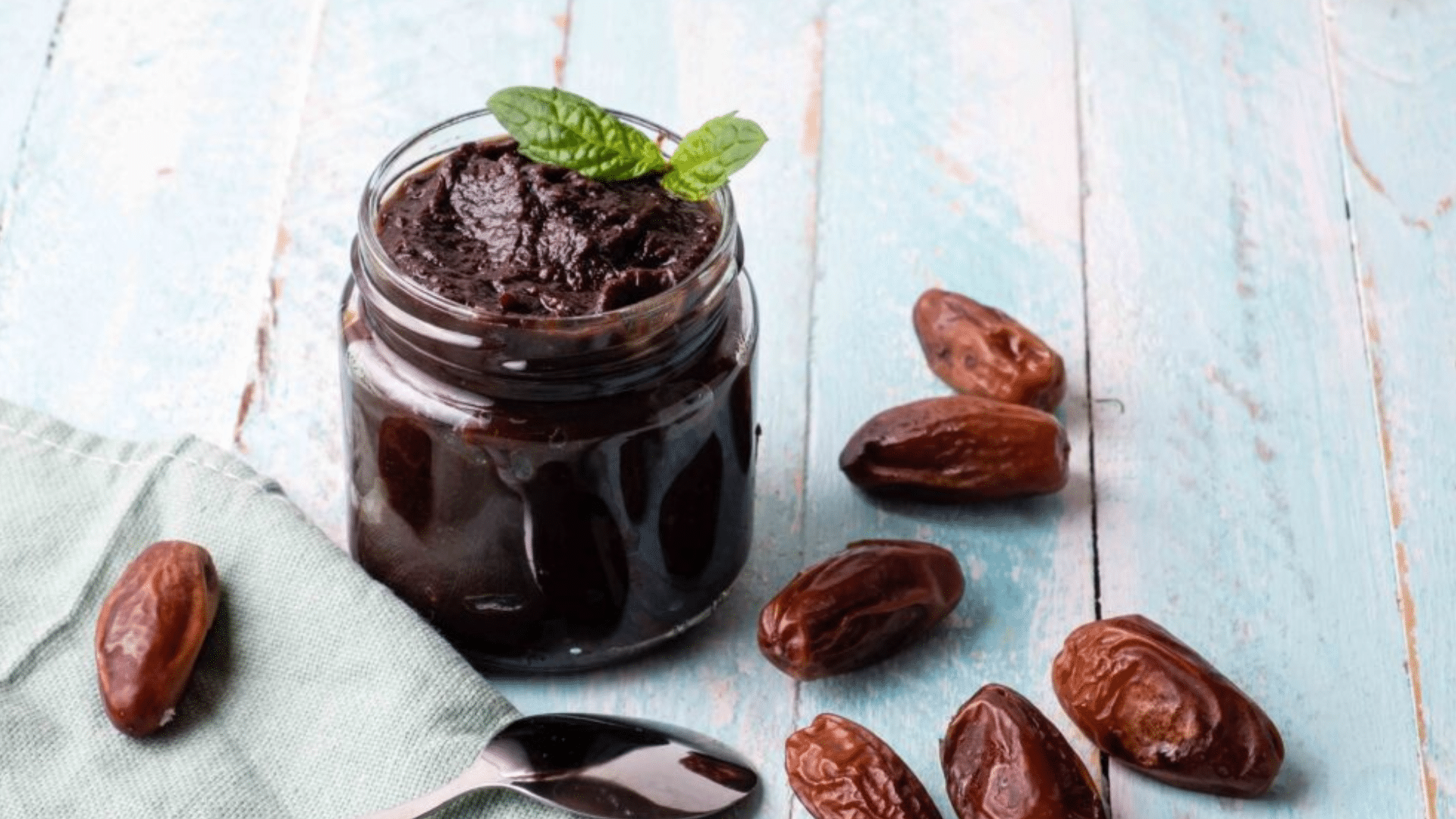
Prep Time: 5 minutes prep, overnight soak
Taste Profile: Sweet and thick
Safe For: Kids, adults, elderly
Best For: Vata
How-To:
- Soak 5 raisins, 2 dates, and 2 figs overnight.
- Blend into a paste in the morning.
- Eat before breakfast with warm water.
Use With Caution: May spike sugar levels if overused. Use 2–3 days per week.
9. Prune Juice
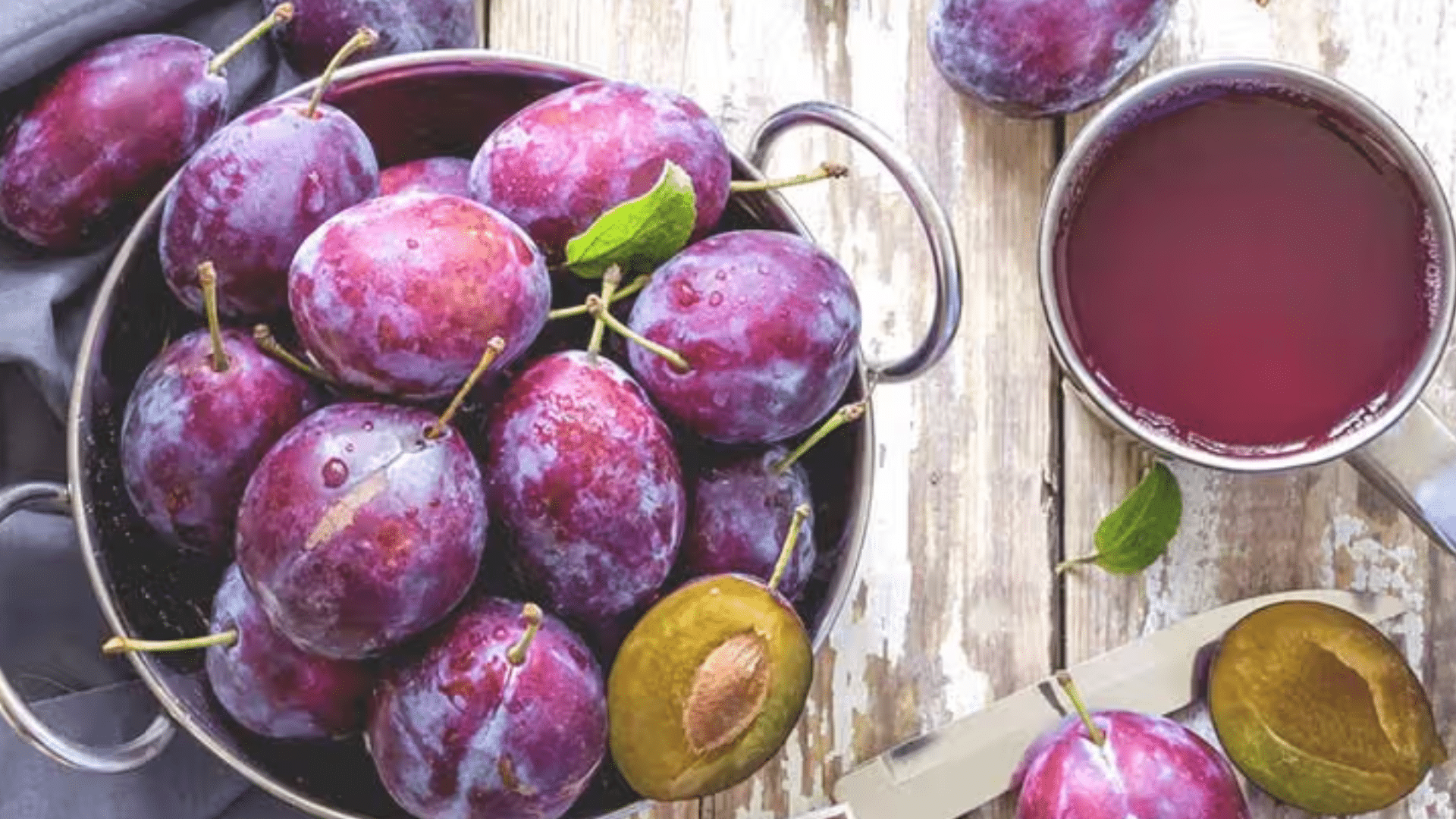
Prep Time: Ready-to-drink or blend fresh
Taste Profile: Sweet-tart
Safe For: Adults, elderly, children over 3
Best For: Vata and Pitta
How-To:
- Drink ½ cup of prune juice in the morning.
- Follow with a glass of warm water.
- Wait 2–3 hours for results.
Use With Caution: Avoid if diabetic. May cause bloating if overconsumed.
10. Lemon Water with Rock Salt

Prep Time: 2 minutes
Taste Profile: Sour and salty
Safe For: All ages
Best For: Kapha and Vata
How-To:
- Squeeze ½ lemon into warm water.
- Add ¼ tsp rock salt.
- Drink slowly first thing in the morning.
Use With Caution: Not suitable for those with high blood pressure or acid reflux.
11. Papaya (Fresh, Ripe)
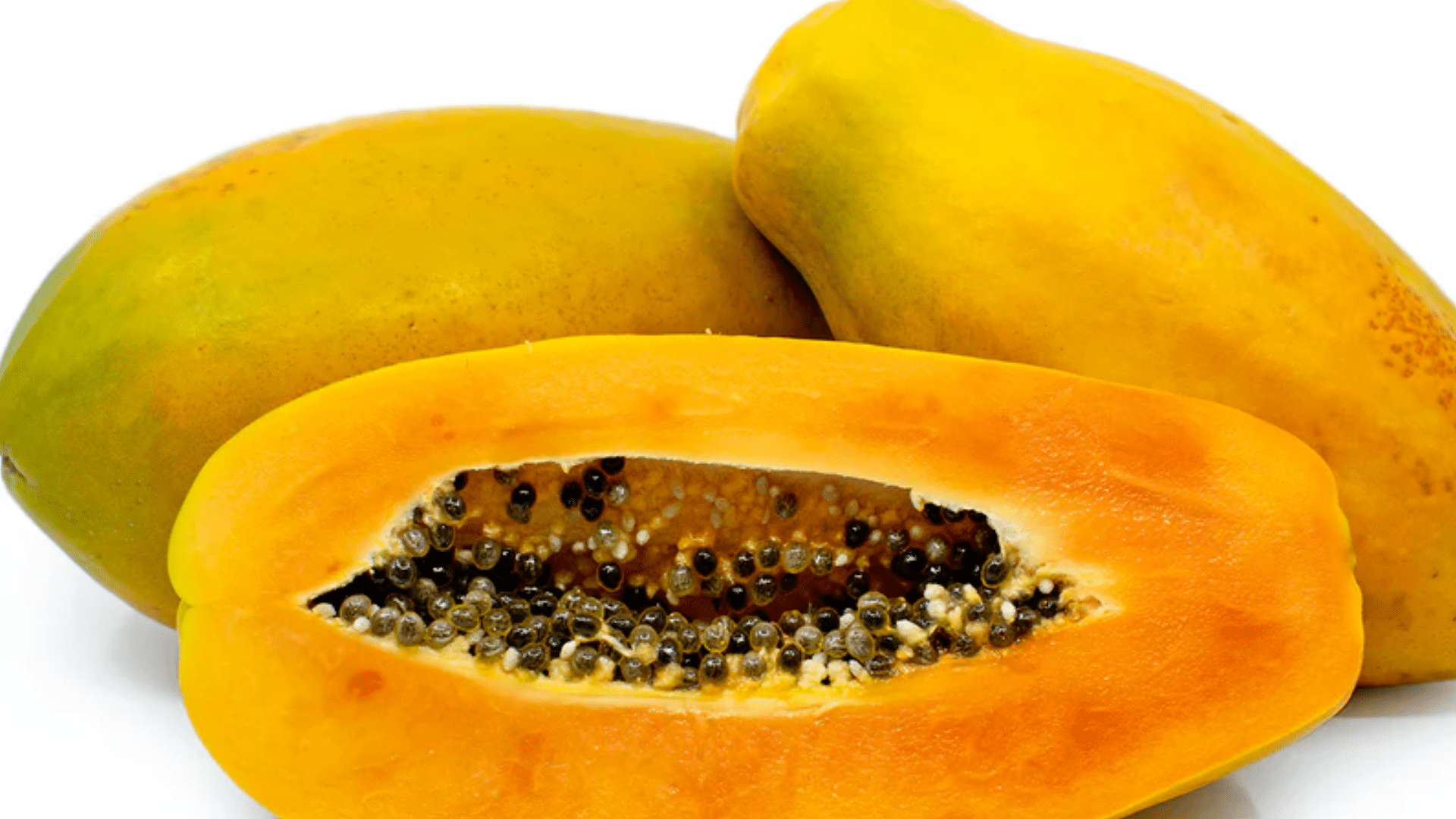
Prep Time: 2 minutes
Taste Profile: Sweet and soft
Safe For: Kids, elderly, pregnant women
Best For: All doshas
How-To:
- Cut a bowl of ripe papaya.
- Eat on an empty stomach in the morning.
- Wait 1–2 hours before eating anything else.
Use With Caution: Safe when ripe; avoid raw papaya during pregnancy.
12. Bael Fruit with Jaggery
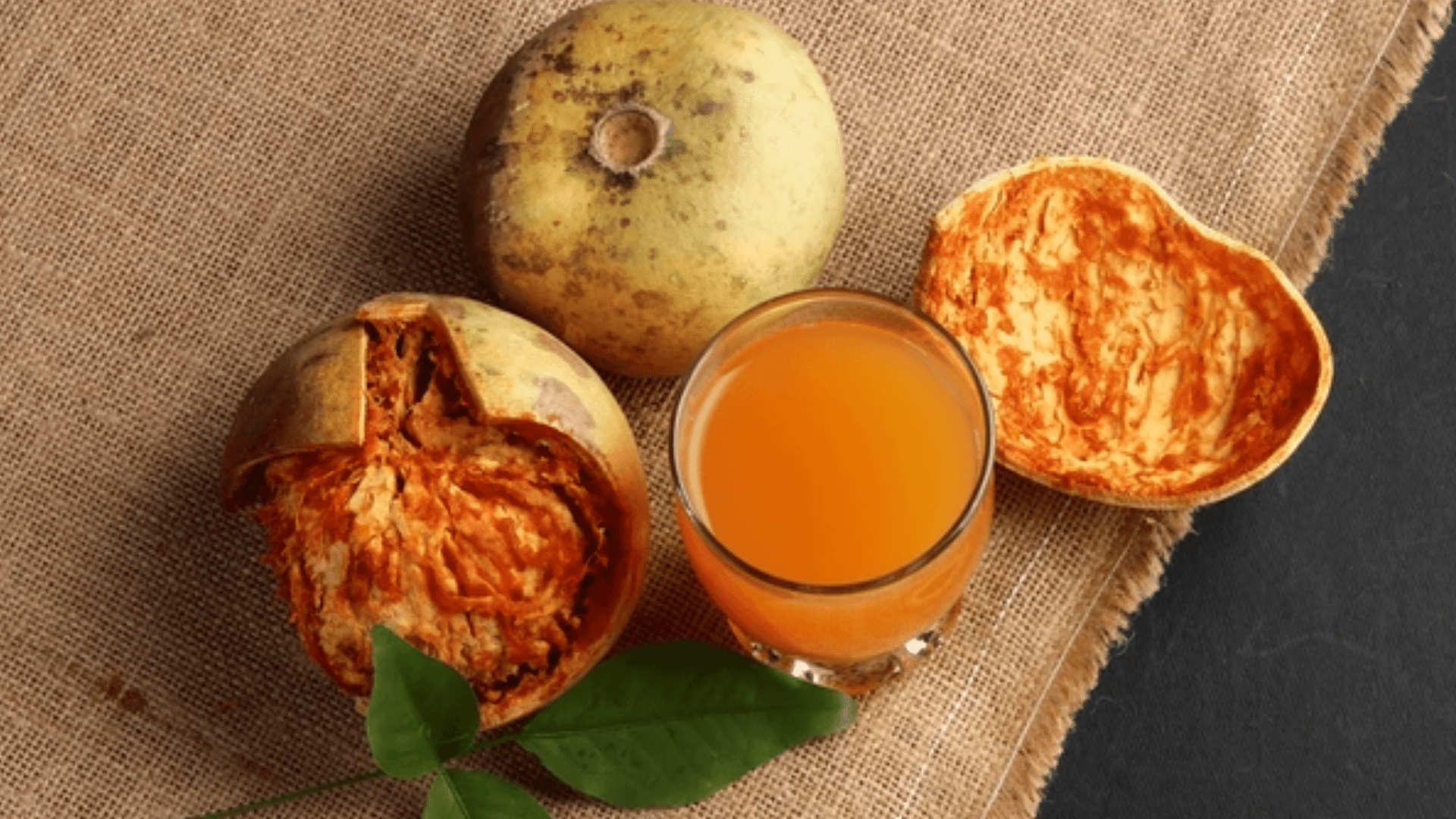
Prep Time: 3 minutes
Taste Profile: Mild and sweet
Safe For: Adults and the elderly
Best For: Vata and Kapha
How-To:
- Scoop pulp from half a bael fruit.
- Mix with 1 tsp jaggery.
- Eat before dinner.
Use With Caution: Avoid in extreme heat. It may not suit people with sensitive digestion.
13. Dry Ginger + Honey + Lemon Shot
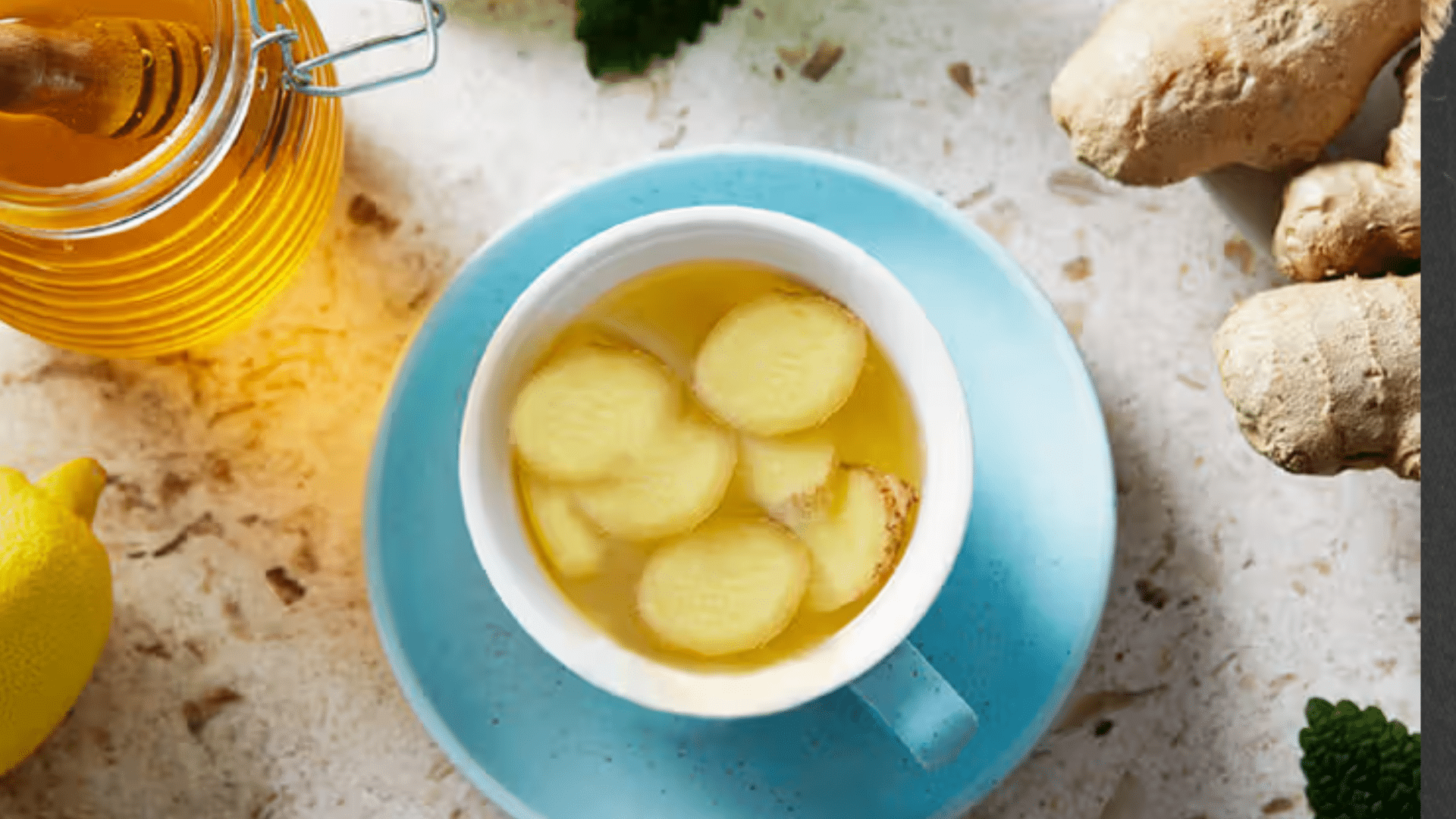
Prep Time: 3 minutes
Taste Profile: Spicy-sweet
Safe For: Adults only
Best For: Vata
How-To:
- Mix ½ tsp dry ginger with 1 tsp honey and lemon juice.
- Stir into ¼ cup warm water.
- Drink in the morning.
Use With Caution: Not for ulcers or hyperacidity. Limit to once daily.
14. Ajwain Seeds + Black Salt + Warm Water
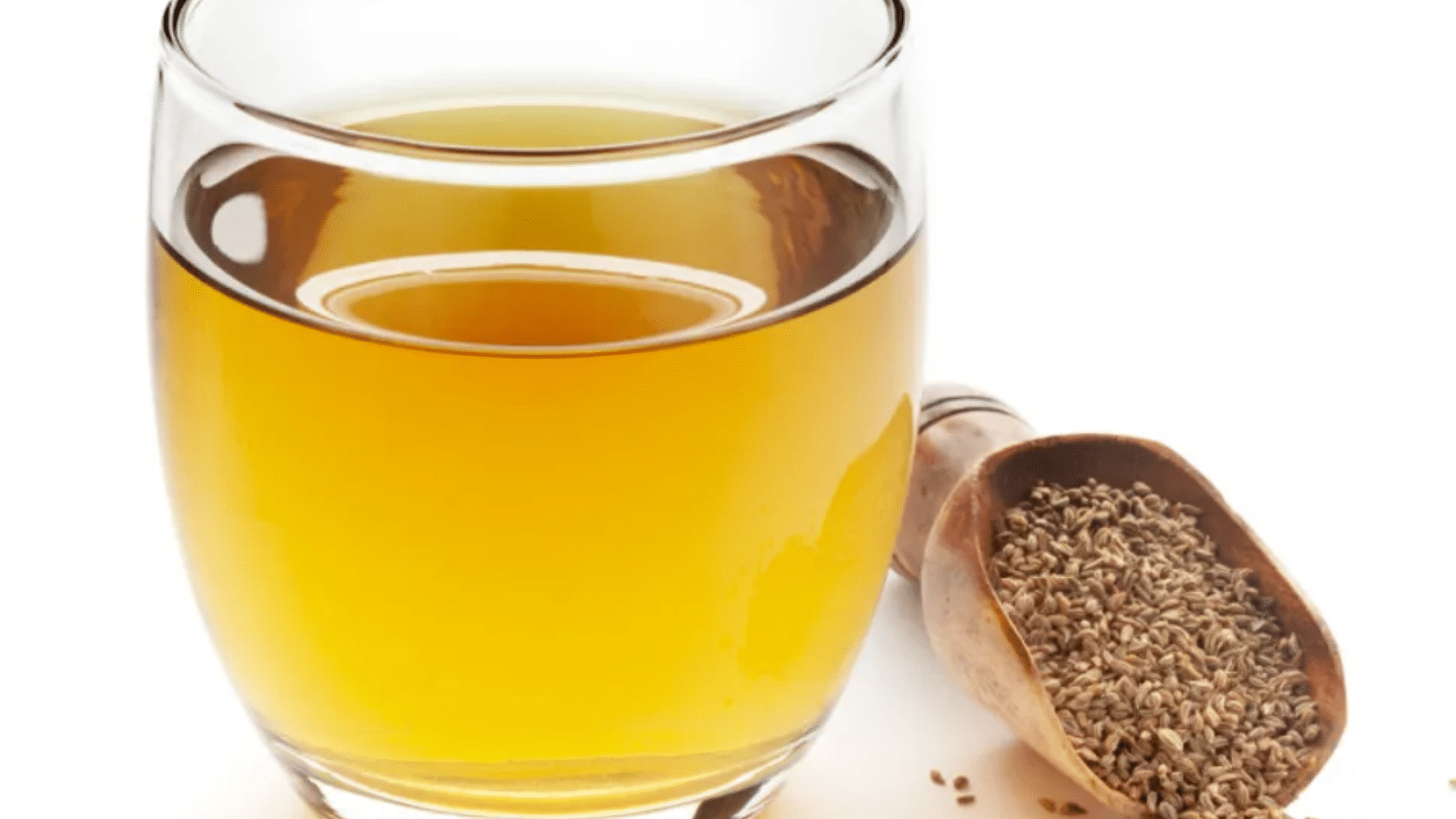
Prep Time: 2 minutes
Taste Profile: Strong, spicy-salty
Safe For: Adults
Best For: Vata and Kapha
How-To:
- Crush ½ tsp ajwain and ¼ tsp black salt.
- Stir into 1 cup warm water.
- Drink after meals.
Use With Caution: Avoid during pregnancy and if you have heartburn.
15. Liquorice Root Powder Drink
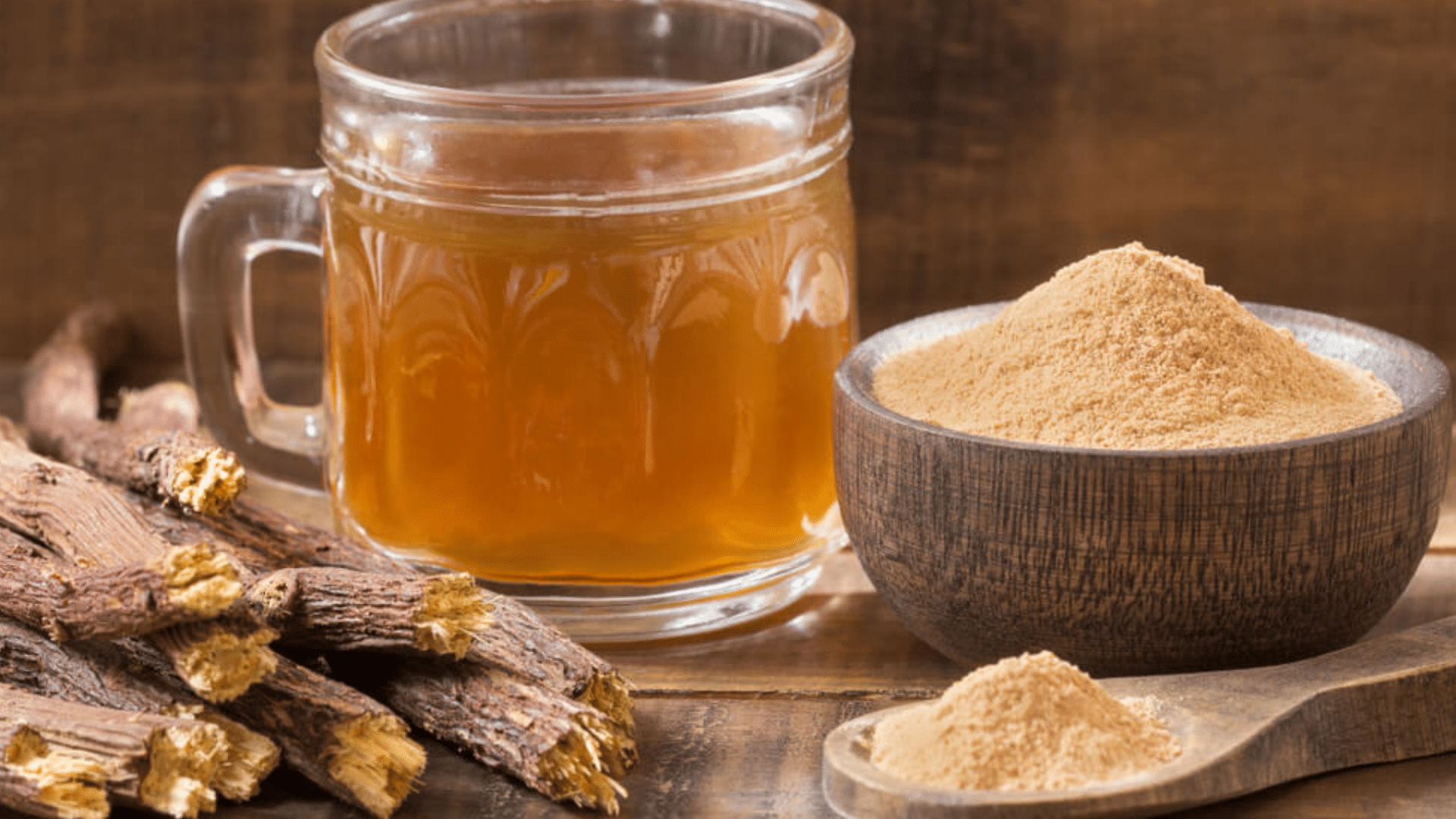
Prep Time: 2 minutes
Taste Profile: Slightly sweet
Safe For: Adults (ask doctor during pregnancy)
Best For: Pitta and Vata
How-To:
- Mix ½ tsp liquorice powder with 1 tsp jaggery.
- Stir into warm water and drink.
- Take once daily after dinner.
Use With Caution: Not for those with high blood pressure. Avoid long-term use without guidance.
Which Remedy Is Right for You?
Choosing the correct remedy depends on age, body type, and how often you deal with constipation. This table simplifies it.
| Category | Safe Remedies | Avoid | Tips |
|---|---|---|---|
| Children | Soaked figs, raisin-date paste, fennel water, lemon water, mild prune juice | Senna, castor oil, Triphala | Stick to fruit-based remedies. Keep the child hydrated and use warm water daily. |
| Pregnant Women | Fennel tea, lemon water, soaked figs, ripe papaya (later stages), ginger tea | Senna, castor oil, Triphala, ajwain mix | Always consult a doctor before using any remedy. Start with the mildest options. |
| Elderly | Ghee in milk, Triphala (low dose), prune juice, soaked figs, bael fruit, fennel | Senna, castor oil (unless advised) | Go slow with dosing. Pair with hydration and gentle morning walks. |
| Vata | Triphala, ghee in milk, ginger tea, papaya, soaked figs, castor oil | Raw or cold foods | Use warm, oily remedies. Combine with grounding foods for balance. |
| Pitta | Fennel tea, soaked raisins, bael fruit, liquorice drink, and prune juice | Dry ginger, ajwain mix | Choose cooling, gentle options. Avoid spicy or heating ingredients. |
| Kapha | Lemon water, ajwain mix, Triphala, ginger tea, senna (sparingly) | Ghee-heavy remedies, too much fig or date | Choose warming and stimulating options. Combine with light food and movement. |
| Occasional | Lemon water, soaked figs, ghee in milk, Triphala (1–2 nights), fennel water | Strong laxatives for mild issues | Try food-based remedies first. Keep water intake consistent and monitor digestion. |
| Chronic | Triphala (routine), papaya, bael fruit, raisin-date paste, yoga + hydration | Daily senna or castor oil | Build a daily rhythm with diet, movement, and fiber-rich fruits. Be patient but consistent. |
Using the proper remedy for your needs makes a big difference. Start small, stay consistent, and always listen to your body.
Supporting Remedies That Build Digestive Strength
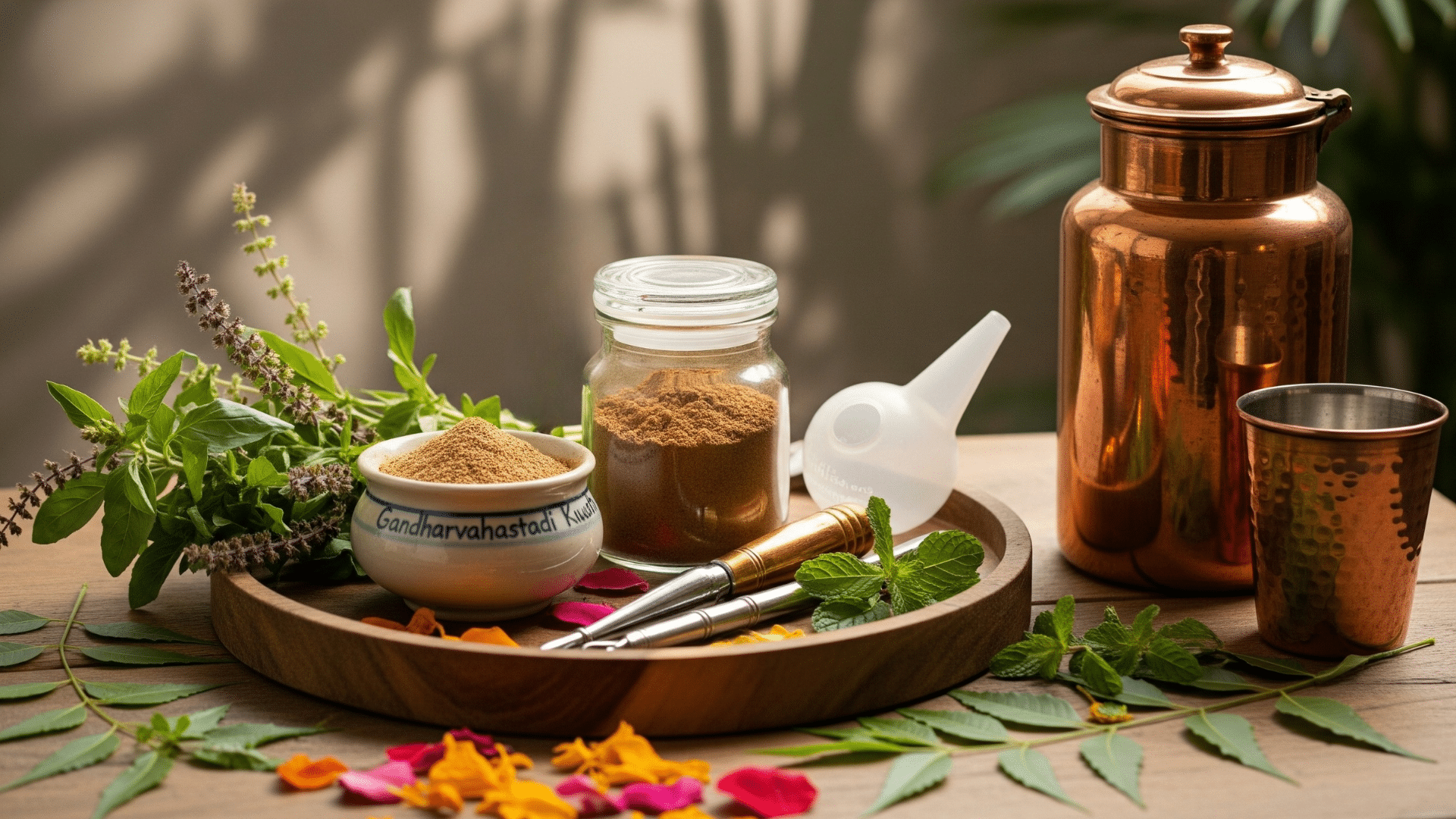
These remedies may not bring instant relief, but they strengthen digestion when used daily and help prevent constipation from returning.
Coconut Oil (1 tbsp Daily)
Taking one tablespoon of coconut oil daily helps lubricate your intestines and soften your stool naturally. It also supports overall digestion and helps reduce gut dryness.
You can take it plain or mix it into warm food. For best results, consume it first thing in the morning or before meals. Avoid if you’re sensitive to fats or have any coconut allergy.
Haritaki + Ghee + Milk (Night Use)
This trio helps calm the body and promote bowel movement by morning. Warm ½ cup milk, add 1 tsp Haritaki powder and 1 tsp ghee. Stir well, let cool slightly, and add 1 tsp honey just before drinking.
Take this mixture 30 minutes before bedtime. It’s constructive for people with Vata-related constipation and those who need consistent overnight support.
Warm Herbal Teas (Cumin, Coriander, Fennel Blend)
This blend helps your gut function better and reduces bloating or sluggish bowels. Mix ½ tsp each of cumin, coriander, and fennel. Boil in 2 cups of water until it reduces slightly, then strain and sip warm.
Drink after meals to support metabolism and relieve discomfort. It’s safe for most people and gentle enough for long-term use. Avoid if you’re allergic to any seed used.
Warm Water Rituals (2–3 Glasses Upon Waking)
Start your day by sipping 2–3 glasses of warm water slowly on an empty stomach. This simple habit stimulates bowel movement, hydrates the digestive tract, and clears toxins.
Use copper-stored water if available for added benefits. Avoid swigging it or drinking it cold. It’s one of the simplest ways to jumpstart your bowel movement each morning and improve regularity naturally.
Diet Tweaks and Exercises to Help You Stay Regular
Address root causes like poor hydration, low fiber, and erratic meals. These changes help prevent constipation from becoming a daily struggle.
Fiber-Rich Fruits and Veggies
Fresh fruits and vegetables provide bulk, enzymes, and moisture, all essential for smooth bowel movements. Choose high-fiber, juicy options like papaya, which supports digestion, and guava with seeds for roughage.
Pears and apples (with skin) are also gentle and effective. Leafy greens like spinach improve stool softness, and soaked raisins add gentle stimulation to sluggish bowels. Include a mix of these foods daily for lasting relief and improved gut balance.
Hydration
Many people overlook dehydration as a cause of constipation. Water helps soften stools and keeps things moving. Warm or room-temperature water is gentler on digestion than cold beverages. Start your day hydrated and stay consistent throughout.
- Drink 2–3 glasses of lukewarm water first thing in the morning
- Use copper-stored water if available
- Sip water throughout the day, not just with meals
- Avoid sugary or fizzy drinks, which can worsen bloating
Motion stimulates digestion. Here’s how to support your system daily with simple habits that keep everything on track.
Yoga Exercises
Gentle yoga stretches help massage your abdominal organs, stimulate digestion, and relieve gas or bloating. Poses like Viparita Karani (legs up the wall), Pawanmuktasana (wind-relieving pose), and seated spinal twists improve circulation in the gut area and help activate bowel movement.
Practice these on an empty stomach in the morning or before bedtime. Breathe deeply while holding each pose and aim to stay relaxed. Even 10 minutes daily can improve regularity.
Post-Meal Walks & Regular Exercise
Light physical activity after meals helps prevent sluggish digestion and keeps your bowels active. A short walk, just 10 to 15 minutes, is often enough to trigger natural movement in your digestive tract.
Aim for two short walks daily: one after lunch and another after dinner. You can also include gentle stretching or stair climbing. Consistency is more important than intensity. The goal is to stay active, not sweaty or exhausted.
Sleep & Routine
Your digestive system thrives on routine. Eating and sleeping at irregular times confuses your body’s internal clock and can delay bowel movements. Try to eat breakfast, lunch, and dinner around the same time each day.
Go to bed early enough to get 7–8 hours of sleep. Avoid heavy meals or snacks late at night, as they can disrupt sleep and slow digestion. A steady daily rhythm builds gut regularity over time.
Dosha Imbalance and Constipation
In Ayurveda, constipation is often linked to Vata imbalance, which creates dryness and restricts movement in the intestines. Vata-dominant individuals may need extra warmth, oil, and grounding routines to restore balance.
If home remedies don’t bring relief within a few days or symptoms become chronic, it’s time to speak with an Ayurvedic practitioner. They can assess your dosha and digestive strength, and then offer a customized treatment plan based on your constitution.
Herbal Formulations
Certain classical Ayurvedic medicines are designed for long-term gut support. Gandharvahastadi Kwath, a liquid herbal decoction, supports regular bowel movements and relieves gas.
Bala Kalpam is a safe option for children, helping ease mild constipation while boosting immunity. In severe or chronic cases, Panchakarma treatments like Basti (medicated enema) are used under professional supervision.
These therapies go beyond symptom relief and aim to strengthen digestion at its root over time.
Conclusion
You don’t have to depend on pills when your digestion feels sluggish. I’ve shared the remedies when I want quick, natural relief that works. Now you’ve got options, some that help instantly and others that build long-term strength in your digestion.
Pick one or two remedies and notice how your body responds over the next few days. Listen to how your system responds. You might be surprised how well these simple habits can help.
And when you’re ready to find more, I’ve got plenty of other tips waiting. Keep reading, stay consistent, and take care of your gut. For more ideas like this, find our website’s other blogs.




